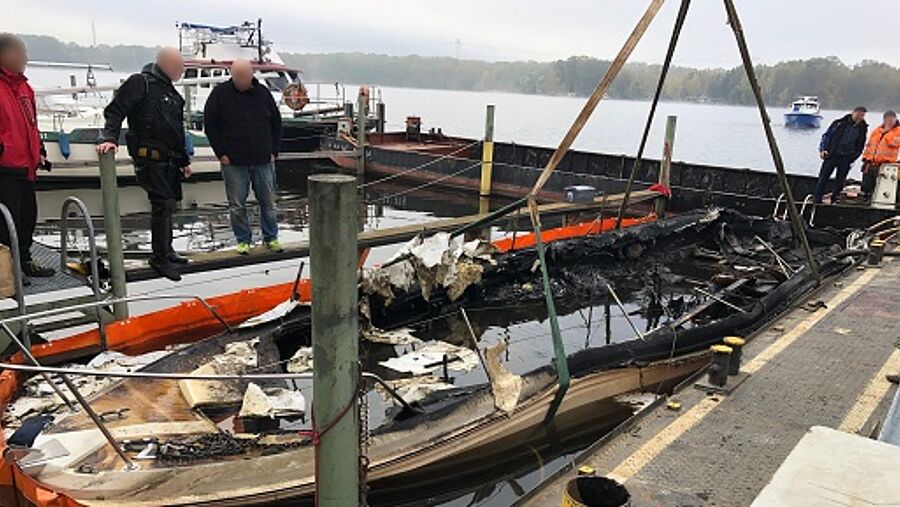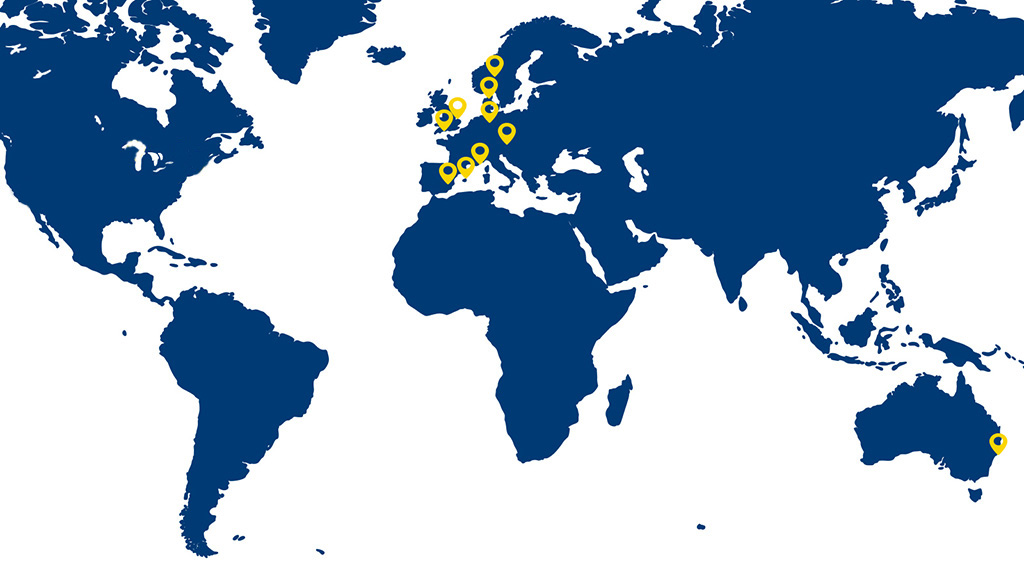Fire hazard - Gas formation in the engine compartment
After his engine fails to start, the owner of a Princess 32 sets out to find the cause. A short time later his ship is on fire. What happened?

IMPORTANT
Anyone who carries out independent work on their boat should always take into account that escaping petrol in combination with ambient air can quickly produce a highly flammable gas-air mixture. If the engine has difficulty starting, it may also be advisable to contact a trusted repair shop.
End of season in a marina near Berlin: A boat owner tries in vain to start the inboard motor, which won't start even after several attempts. So the owners starts to search for the cause... With the help of an external battery, the owner makes another start attempt but this one is also unsuccessful. Next, the owner removes the spark plugs of the port engine, cleans and dries them. Whilst the spark plugs are removed, he operates the starter for the port engine to remove excess fuel from the combustion chambers. After several renewed attempts to start the engine, there is a loud bang and the engine compartment is suddenly ablaze with flames. The shocked owner is lucky in this misfortune: the owner can escape from the ship to safety and remain unhurt in this incident. The damage to the boat, however, is extensive. When the fire brigade arrives, there is hardly anything left of the GRP hull.
DANGEROUS FUMES
There are many potential causes of fire on board. Fire damage caused by flammable gases in the engine compartment is particularly common. Time and again, boat owners underestimate the danger posed by petrol-driven inboard engines. Engine compartments on ships are usually closed systems, and vapours can quickly collect and compress here. It was probably similar in this case: during the start-up and cleaning tests, saturated petrol vapours entered the engine room unhindered. Mixed with oxygen, a highly ignitable gas mixture was formed. A jumped ignition spark, formed at a spark plug connector to the engine block during the engine's starting attempts, may have been sufficient in this case to ignite the mixture.
